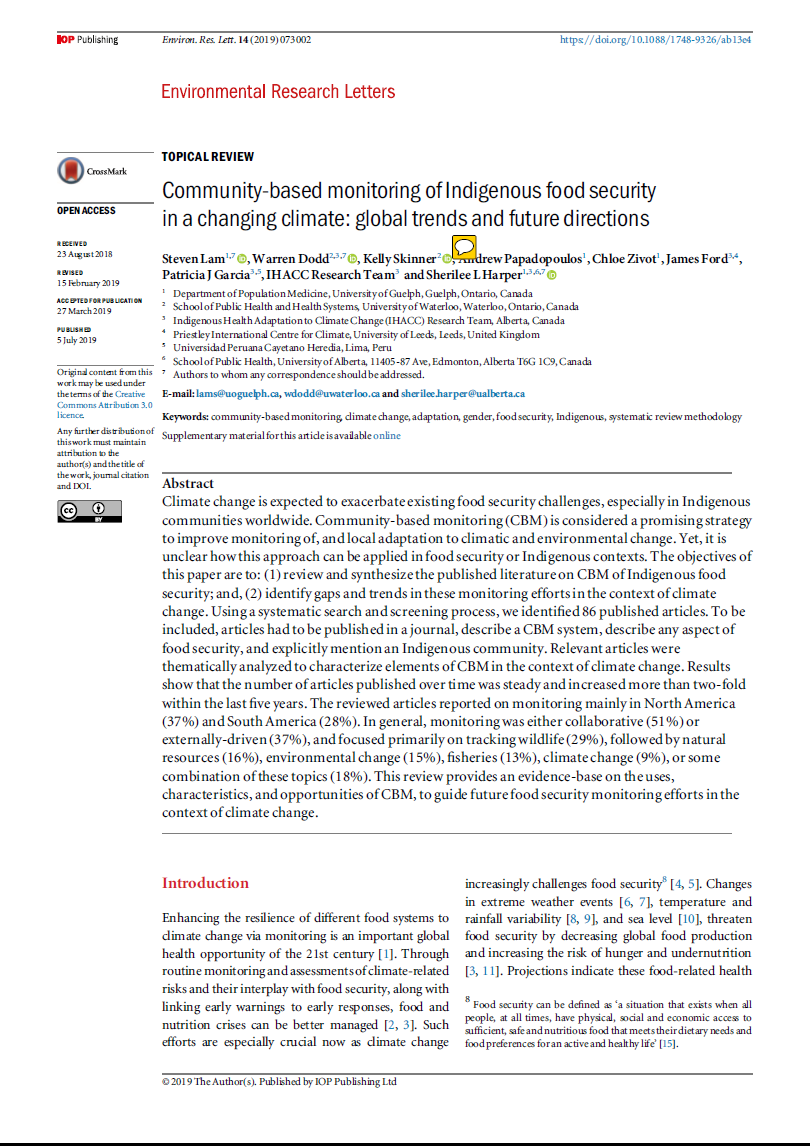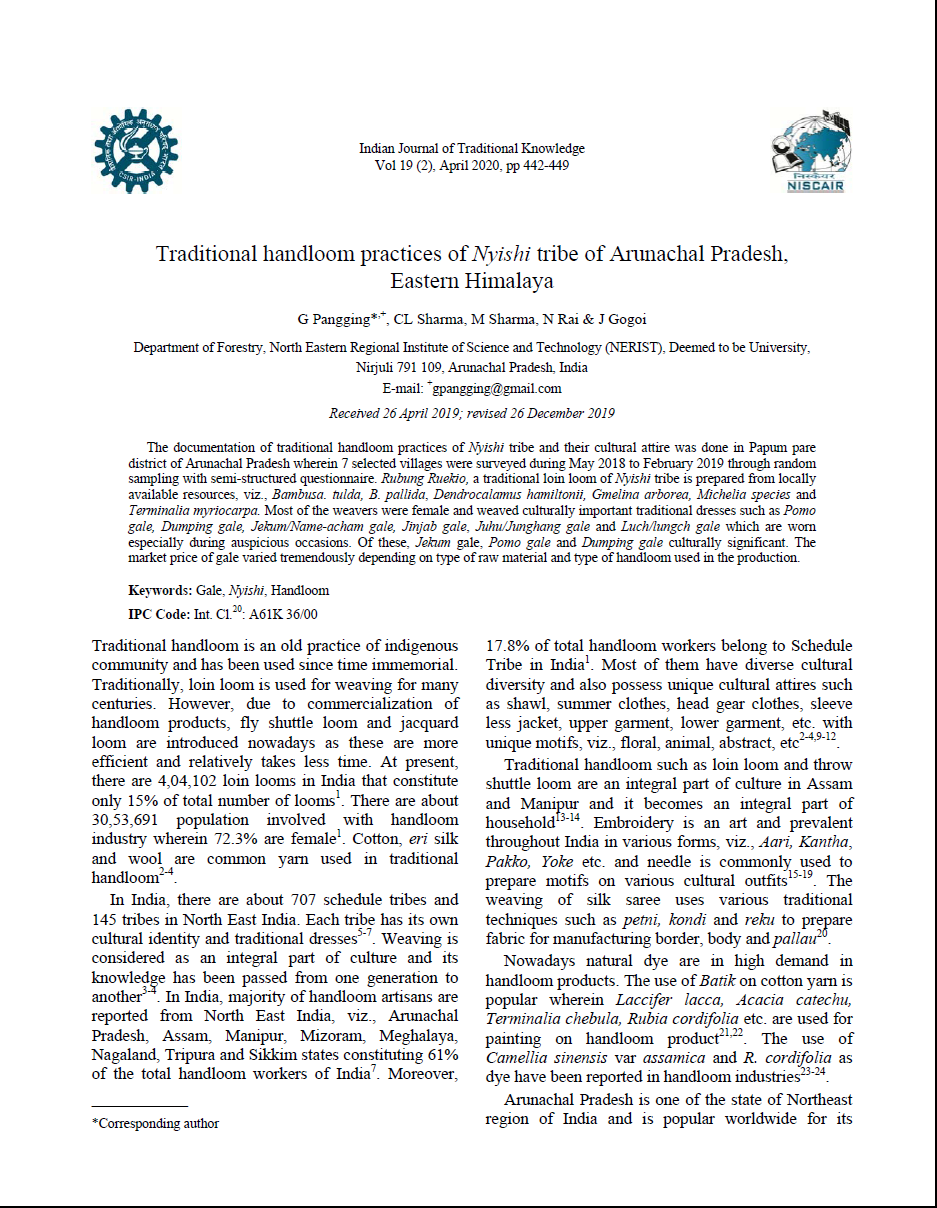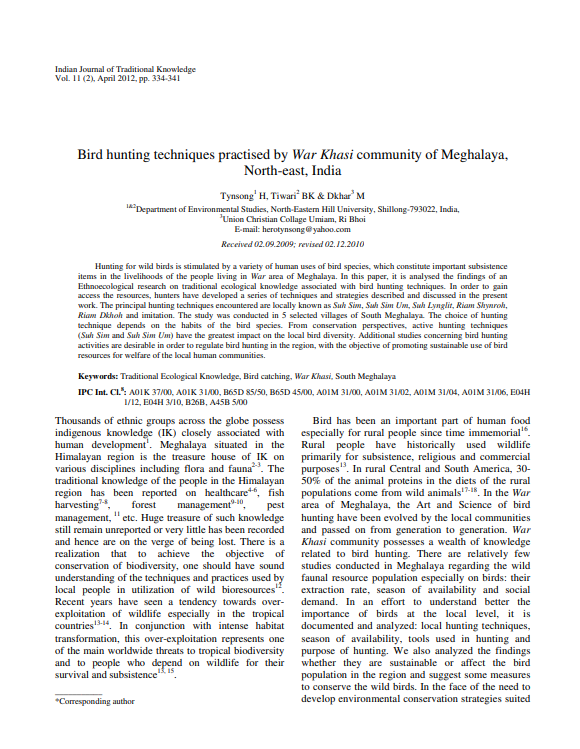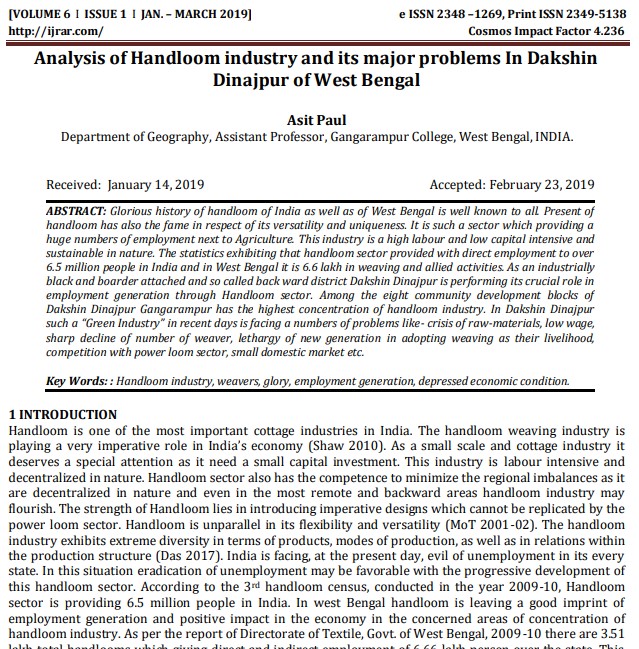Knowledge Hub

Community-Based Monitoring of Indigenous Food Security in a Changing Climate: Global Trends and Future Directions
2019
Author(s): Lam S, Dodd W, Skinner K, Papadopoulos A, Zivot C, Ford J, Garcia PJ, Harper SL
This review provides an evidence-base on the uses, characteristics, and opportunities of CBM, to guide future food security monitoring efforts in the context of climate change.
Importance of Centering Traditional Knowledge and Indigenous Culture in Geoscience Education
2023
Author(s): Todd WF, Towne CE, Clarke JB
This study aims to show through authentic voice the importance of centering TK systems and cultural needs to provide equitable geoscience education programs. TK can be communicated through a variety of methods, such as story and song, dance, paintings, carvings, structures, and textiles.
Problems of Handloom Weavers: A Case Study of Mangalagiri, Guntur District
2019
Author(s): Maddela S, Pradeep M
This article discusses about the hardships and problems faced by handloom weavers n carrying out their livelihood on handloom. The challenges are due to fierce competition with power loom sector, marketing problem, infrastructural constraints, and rising yarn prices.
Indigenous Knowledge, Science, and Resilience: What Have We Learned from a Decade of International Literature on “Integration”?
2011
Author(s): Bohensky EL, Maru Y
This paper investigated the themes, questions, or problems encountered for integration of indigenous knowledge and science; the relationship between knowledge integration and social-ecological system resilience; and critical features of knowledge integration practice needed to foster productive and mutually beneficial relationships between indigenous knowledge and science.

Traditional Handloom Practices of Nyishi Tribe of Arunachal Pradesh, Eastern Himalaya
2020
Author(s): Pangging G, Sharma CL , Sharma M , Rai N, Gogoi J
This study is based on the documentation of traditional handloom practices of Nyishi tribe and their cultural attire was done in Papum Pare district of Arunachal Pradesh.

Bird Hunting Techniques Practiced by War Khasi Community of Meghalaya, North-East, India
2010
Author(s): Tynsong H, Tiwari BK, Dkhar M
This paper analyzed the findings of an ethnoecological research on traditional ecological knowledge associated with bird hunting techniques.
The Role of Indigenous Knowledge in SocioEconomic Development
2015
Author(s): Githui W , David N , Maurice S
This study discusses with the advanced technology in IK usage and preservation empowers users to improve on pre-existing solutions to a problem, achieve a goal, and most of all improve on the standards of living. IK is a preferred mode used at the local levels by communities as more tacit than explicit.

Analysis of Handloom Industry and its major problems In Dakshin Dinajpur of West Bengal
2019
Author(s): Paul A
This study focus on the handloom industry at Dakshin Dinajpur, West Bengal that are facing numbers of problems like- crisis of raw-materials, low wage, sharp decline of number of weaver, lethargy of new generation in adopting weaving as their livelihood, competition with power loom sector, small domestic market.
Traditional Medicine: Past, Present and Future Research and Development Prospects and Integration in the National Health System of Cameroon
2011
Author(s): Fokunang CN, Ndikum V, Tabi OY, Jiofack RB, Ngameni B, Guedje NM, Tembe-Fokunang EA, Tomkins P
In this study it shows that the high cost of drugs and increase in drug resistance to common diseases like malaria, bacteria infections and other sexually transmitted diseases has caused the therapeutic approach to alternative traditional medicine as an option for concerted search for new chemical entities (NCE).
Overview Report of the Research Project by the International Labour Organization and the African Commission on Human and Peoples’ Rights on the Constitutional and Legislative Protection of the Rights of Indigenous Peoples in 24 African Countries
2009
Author(s): International Labour Organization, African Commission on Human and Peoples’ Rights
The project examined the extent to which the legal framework of 24 selected African countries impacts on and protects the rights of indigenous peoples.



